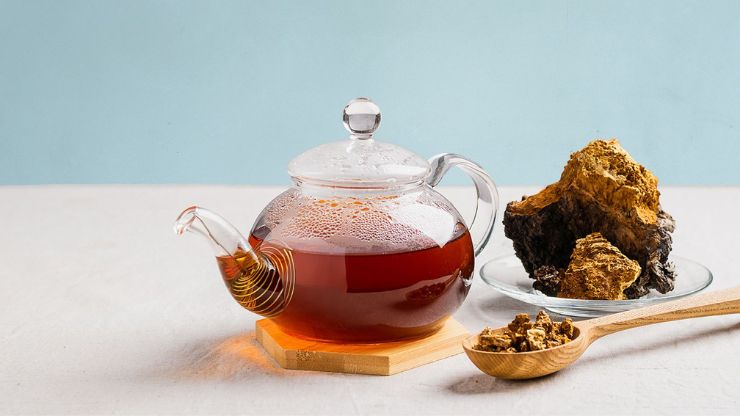Best Teas for a Longer and Healthier Life – The consumption of tea has been intertwined with human history, offering a tapestry of flavors and a rich cultural heritage. Beyond its delightful taste and soothing ritual, tea has earned a well-deserved reputation for promoting longevity and overall health. In this article, we delve into the world of teas, uncovering the varieties that hold the key to a longer and healthier life.
Tea’s remarkable properties, particularly its abundant antioxidants, make it a formidable ally in safeguarding well-being. From fortifying cardiovascular health and aiding weight management to bolstering the immune system, tea’s benefits are as diverse as the leaves themselves.
Whether you prefer the briskness of green tea, the robustness of black tea, the soothing qualities of herbal infusions, or the subtlety of white and oolong teas, this exploration will guide you through the choices that can enhance your vitality.
Discover how to brew the perfect cup, integrate tea into your daily routine, and take precautions to ensure a safe and balanced consumption. As we delve into the world of teas, remember that a longer and healthier life can be as simple as savoring your favorite brew.
Table of Contents
ToggleHealth Benefits of Tea
Tea, a beloved beverage enjoyed worldwide, offers a multitude of health benefits that can contribute to a longer and healthier life. Some of the key health benefits of tea include:
- Rich in Antioxidants: Tea is packed with powerful antioxidants, such as catechins and polyphenols. These compounds help combat free radicals, reduce oxidative stress, and protect cells from damage. Antioxidants play a vital role in preventing chronic diseases and supporting overall health.
- Cardiovascular Health: Regular tea consumption, especially green tea, has been associated with a reduced risk of heart disease and stroke. It helps lower blood pressure, improve cholesterol levels, and enhance blood vessel function, all of which are essential for heart health.
- Weight Management: Tea, particularly green tea, contains natural compounds like EGCG (epigallocatechin gallate) that can boost metabolism and support weight management. It aids in the oxidation of fat and may contribute to weight loss efforts when combined with a balanced diet and exercise.
- Improved Digestion: Herbal teas, such as peppermint or ginger tea, can aid in digestion and alleviate digestive discomfort. They can reduce bloating, ease nausea, and promote a healthy gut.
- Stress Reduction: Many herbal teas, including chamomile and lavender, have natural calming properties. Drinking a warm cup of these teas can help reduce stress and promote relaxation, improving mental well-being.
- Enhanced Immune Function: The immune system can benefit from the consumption of tea, as it contains vitamins, minerals, and antioxidants that support the body’s defenses against infections and illnesses.
- Bone Health: Some studies suggest that tea, especially green tea, may help improve bone density and reduce the risk of osteoporosis, thanks to its high content of beneficial compounds.
- Oral Health: Tea, particularly green and black tea, contains fluoride and tannins that can help reduce the growth of harmful bacteria in the mouth. This contributes to improved oral health and reduced risk of cavities and gum disease.
Also, Read – Healthy Mediterranean Diet Meal Plan Ideas
Best Teas for a Longer and Healthier Life
Green Tea
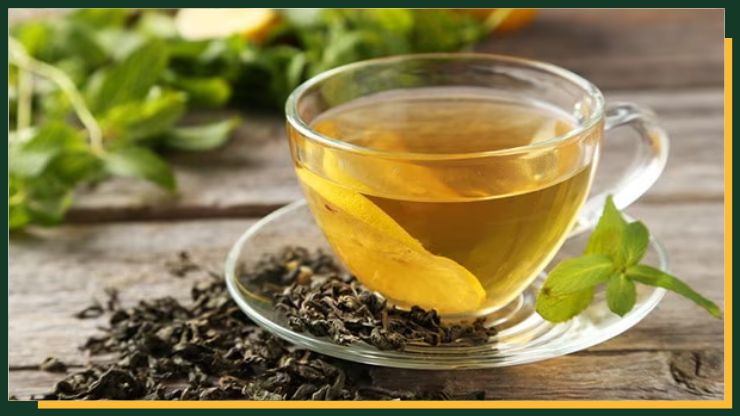
Green tea is rich in antioxidants, primarily catechins, which can support heart health, aid in weight management, and reduce the risk of certain cancers. It is a low-calorie beverage that can provide a mild caffeine boost.
Green tea is known for its potential to boost metabolism, promote fat oxidation, and improve overall well-being. It has been associated with reduced inflammation and improved brain function.
Regular consumption of green tea is part of many healthy lifestyles, contributing to its reputation as a beneficial beverage for those seeking a health-conscious choice.
Black Tea

Black tea, known for its bold flavor and dark color, is a rich source of antioxidants, such as theaflavins and thearubigins. These compounds are linked to potential health benefits, including improved heart health and reduced risk of stroke.
Black tea contains caffeine, providing a moderate energy boost, and it’s often chosen for its stimulating effect. Some studies suggest that black tea may help improve focus and cognitive function.
It’s also associated with digestive benefits and may aid in reducing the risk of certain chronic diseases. Whether enjoyed plain or with added milk and sugar, black tea is a widely consumed beverage with potential health advantages.
White Tea
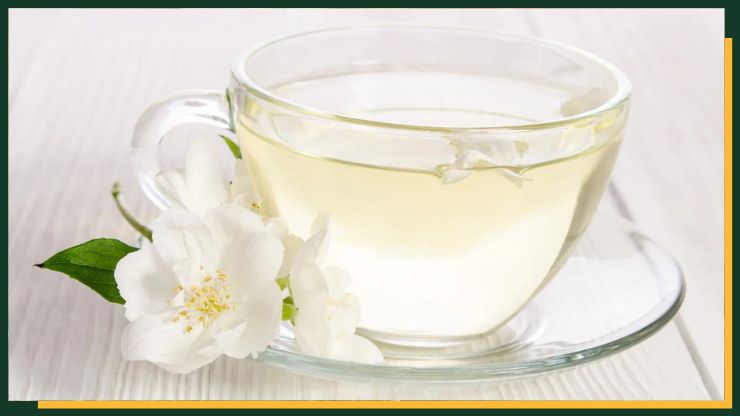
White tea is a minimally processed tea variety known for its delicate and subtle flavor. It’s loaded with antioxidants, including catechins and polyphenols, which offer potential health benefits. These compounds may help protect the body against oxidative stress, reduce the risk of chronic diseases, and promote healthy skin.
White tea is often associated with anti-aging properties due to its ability to combat free radicals and support collagen production. While it contains less caffeine than black or green tea, it can still provide a gentle energy boost. White tea’s light and refreshing taste make it a popular choice for those seeking a milder tea with potential wellness advantages.
Also, Read – Healthy Foods That Boost Energy
Oolong Tea
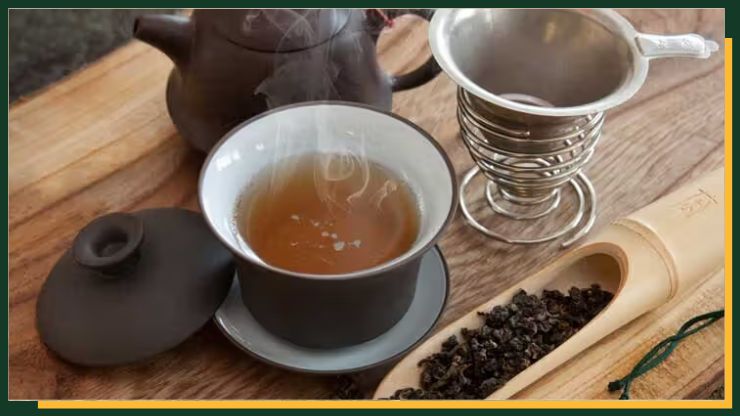
Oolong tea falls between green and black tea in terms of processing, offering a unique flavor profile and potential health benefits. It’s a rich source of antioxidants and polyphenols, such as theaflavins and catechins, which may contribute to improved metabolism and weight management.
Oolong tea is believed to help regulate blood sugar levels and reduce the risk of type 2 diabetes. It also contains caffeine, providing a mild energy boost and increased alertness. Some studies suggest that oolong tea may aid in digestion and promote heart health.
Its well-rounded taste, with floral and fruity notes, makes it a favorite for tea enthusiasts seeking a balance of flavor and potential wellness advantages.
Herbal Teas
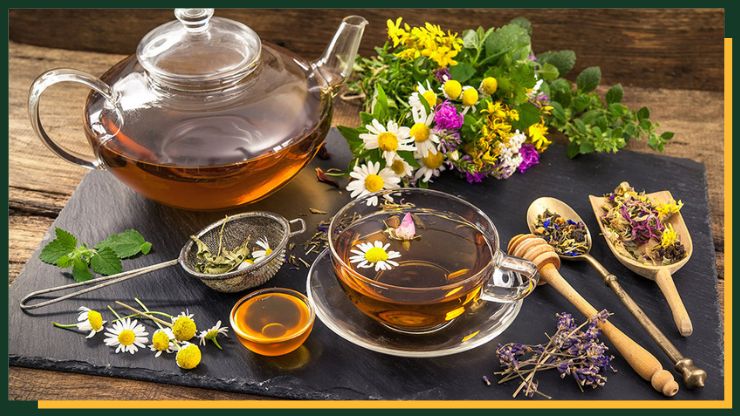
Herbal teas are caffeine-free infusions made from a variety of plants, flowers, and herbs. They offer a range of potential health benefits. Chamomile tea is known for its calming properties, aiding in relaxation and sleep.
Peppermint tea can soothe digestive discomfort and alleviate nausea. Ginger tea is favored for its digestive benefits and may help reduce inflammation. Lavender tea promotes relaxation and stress relief. Rooibos tea is rich in antioxidants and may have anti-inflammatory and immune-boosting properties.
Hibiscus tea is packed with vitamin C and antioxidants, potentially lowering blood pressure and supporting heart health. These herbal teas provide a flavorful and soothing way to address various wellness needs.
Rooibos Tea
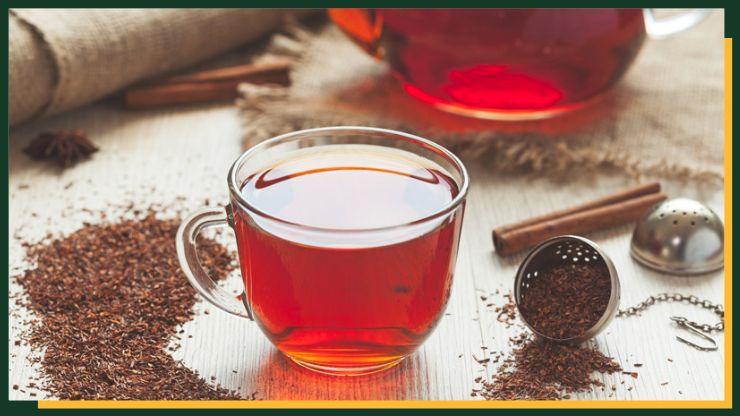
Rooibos tea, often called red bush tea, is a caffeine-free herbal infusion originating from South Africa. It’s celebrated for its potential health benefits and vibrant red color. Rooibos is rich in antioxidants like quercetin and aspalathin, which may have anti-inflammatory and immune-boosting properties.
This tea is known for its calming and soothing effects, making it a popular choice to reduce stress and promote relaxation. Some studies suggest it can support heart health by improving cholesterol levels and blood pressure.
Additionally, rooibos tea is naturally low in tannins, making it a gentle option for those with sensitive stomachs. With its mild, earthy flavor, it’s a versatile and health-conscious choice.
Matcha Tea
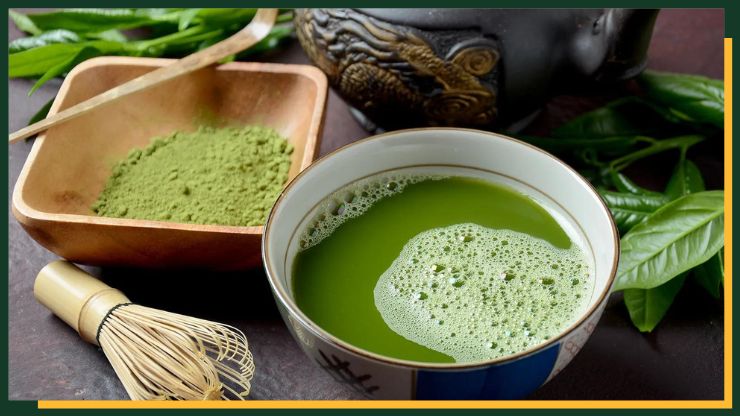
Matcha tea is a vibrant green tea variety that is finely ground into a powder. It’s celebrated for its intense flavor and potent health benefits. Packed with antioxidants, notably catechins, matcha offers potential anti-inflammatory and anti-aging properties.
It provides a sustained energy boost and improved alertness due to its moderate caffeine content. Matcha is also known for its ability to enhance concentration and focus, thanks to the amino acid L-theanine.
Don't just scroll, subscribe!
BuzzTrail's unique web-stories are the cure for boredom you've been waiting for.
Additionally, it’s believed to support weight management by increasing metabolism and aiding in fat oxidation. This tea is a key component of traditional Japanese tea ceremonies and is gaining popularity worldwide as a flavorful and health-conscious choice.
Hibiscus Tea
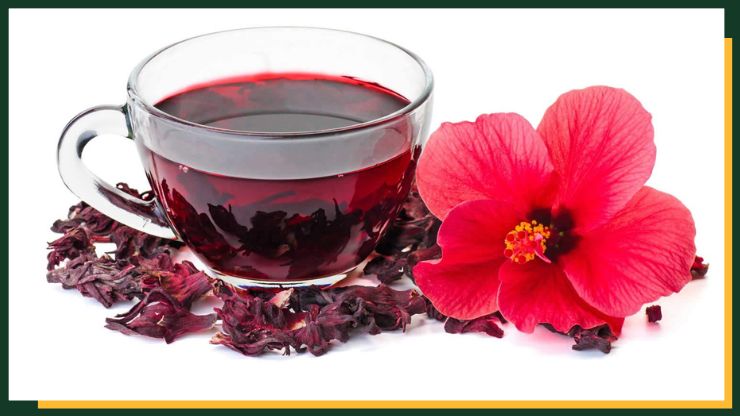
Hibiscus tea, made from the dried calyces of the hibiscus flower, is a brilliant red herbal infusion celebrated for its potential health benefits. It’s naturally caffeine-free and rich in vitamin C and antioxidants.
Hibiscus tea is known for its ability to lower blood pressure, making it a heart-healthy choice. Its antioxidants, including anthocyanins and quercetin, can combat oxidative stress and reduce the risk of chronic diseases.
Some studies suggest it may help with weight management and cholesterol levels. The tea has a tart, tangy flavor, often sweetened with honey or other natural sweeteners. Whether enjoyed hot or iced, hibiscus tea offers a refreshing and health-conscious beverage option.
Turmeric Tea

Turmeric tea, made from the roots of the turmeric plant, is renowned for its powerful health benefits. The active compound in turmeric, curcumin, is a potent anti-inflammatory and antioxidant agent. Turmeric tea is prized for its potential to reduce inflammation, relieve arthritis symptoms, and support joint health.
It may also enhance the body’s natural defenses and reduce the risk of chronic diseases. Curcumin’s anti-inflammatory properties may even contribute to improved brain function and mood. This tea has a warm, earthy flavor with a hint of spice, making it a soothing and health-conscious choice. It’s a popular beverage for those seeking to harness the potential wellness advantages of turmeric.
Pu-erh Tea
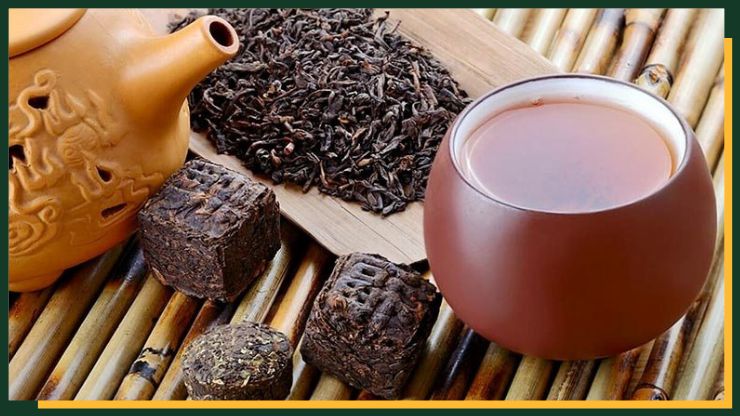
Pu-erh tea, an aged and fermented tea from China, is known for its unique flavor and potential health benefits. It undergoes a natural fermentation process, which can contribute to its earthy, robust taste.
Pu-erh tea is believed to aid in digestion by promoting the growth of beneficial gut bacteria and reducing fat absorption, making it associated with weight management. Some studies suggest it can help lower cholesterol levels and reduce the risk of heart disease.
The tea also contains compounds like theabrownins, which have antioxidant properties. Pu-erh tea, available in both raw and ripe forms, offers a distinctive and health-conscious choice for tea enthusiasts looking to explore its potential wellness advantages.
Herbal Teas for Kids
Chamomile Tea
Chamomile tea is a soothing herbal infusion known for its calming properties. It’s caffeine-free and has a mild, floral flavor that’s appealing to kids. This gentle tea can help children relax, reduce anxiety, and ease digestive discomfort.
It’s often recommended for bedtime to promote a sense of calm and improve sleep quality. Chamomile tea is a safe and natural choice for kids, but consult a healthcare professional if you have any concerns about allergies or specific health conditions.
Peppermint Tea
Peppermint tea is a refreshing herbal infusion with a cool, minty flavor. It’s caffeine-free and a great option for kids, as it can help alleviate digestive issues like gas, bloating, and indigestion. This soothing tea is also known for its ability to relieve headaches and mild congestion, making it a useful choice for children experiencing discomfort due to these issues.
It’s a pleasant and natural remedy to ease minor ailments and can be served hot or cold. Ensure that the tea is not too hot when serving it to children, and consult a healthcare professional if you have any concerns about its suitability for your child.
Ginger Tea
Ginger tea is a warming and invigorating herbal brew, safe for kids. With a spicy, yet comforting flavor, it’s an excellent choice for alleviating upset stomachs, nausea, and motion sickness. This caffeine-free tea can be soothing for children’s digestive discomfort, making it a go-to option for tummy troubles.
It’s also beneficial for relieving mild headaches and congestion, especially during cold and flu season. Be sure to serve ginger tea at a suitable temperature for children, and consult a healthcare professional if you’re uncertain about its appropriateness for your child, particularly if they have specific health conditions or allergies.
Fruit Infusions
Fruit infusions are delightful herbal teas for kids. These caffeine-free blends are made with a variety of dried fruits and sometimes hibiscus flowers. They offer a burst of natural flavors and vibrant colors that children love.
Fruit infusions are not only delicious but also packed with antioxidants and vitamin C, making them a healthier alternative to sugary fruit juices. They can be served hot or cold, making them versatile for any season.
These teas can help keep kids hydrated while providing a fruity taste without added sugars. However, be mindful of any potential allergies to specific fruits, and always serve them at an appropriate temperature for children.
Lemon Balm Tea
Lemon balm tea is a mild and soothing herbal infusion suitable for kids. It has a gentle, lemony flavor that children often find appealing. This caffeine-free tea is known for its calming effects, making it a great choice to reduce stress and anxiety in kids.
It can promote relaxation and help with restlessness or mild sleep disturbances. Lemon balm tea is a safe and natural option to support children’s overall well-being, especially during hectic times or before bedtime.
Ensure the tea is served at an appropriate temperature for kids, and consult with a healthcare professional if you have concerns about its suitability for your child, particularly if they have specific health conditions or allergies.
Rooibos Tea
Rooibos tea is a caffeine-free herbal infusion that’s well-suited for children. It has a naturally sweet and earthy flavor that many kids find appealing. Rich in antioxidants and free of caffeine, Rooibos tea offers a healthy alternative to traditional tea or sugary beverages.
It’s gentle on the stomach and can be enjoyed hot or cold. Rooibos is known for its potential health benefits, including anti-inflammatory properties, making it a good choice for kids’ overall well-being.
However, always ensure it’s served at a suitable temperature for children and consult with a healthcare professional if you have any concerns about introducing Rooibos tea into your child’s diet, especially if they have specific health conditions or allergies.
Conclusion
In conclusion, tea’s diverse health benefits, ranging from its rich antioxidant content to its support for cardiovascular health, immune function, and more, make it a valuable addition to a longer and healthier life.
As we explore the world of teas, we find a flavorful pathway to wellness that intertwines tradition and science. So, raise your cup to a healthier you, and embrace the simple yet profound pleasures that tea can bring to your journey toward well-being.
FAQs
What are the best teas for improving heart health?
What are the best teas for improving heart health?
Green tea and black tea are known for their cardiovascular benefits due to their ability to lower cholesterol levels and reduce the risk of heart disease.
Can drinking tea help with weight loss?
Can drinking tea help with weight loss?
Yes, certain teas, such as green tea and oolong tea, contain compounds that can boost metabolism and support weight management when combined with a healthy diet and exercise.
Is it safe to drink tea if I have caffeine sensitivity?
Is it safe to drink tea if I have caffeine sensitivity?
Herbal teas are typically caffeine-free and a safe option for those with caffeine sensitivity. Decaffeinated teas are also available for those who want to enjoy traditional teas without the caffeine.

